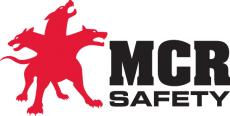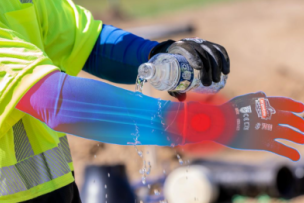MCR Safety has over forty years of experience as a leader in the field of personal protective equipment (PPE). Our assortment of offerings includes gloves, glasses, and garments which are made from the highest quality materials available to ensure maximum safety, comfort, and style.
Many dirty jobs require long hours of back-breaking labor, often in harsh conditions, and involve tasks that most people consider unpleasant or dangerous. Yet, these jobs are crucial to our way of life. From agriculture and ranching to mining and construction, dirty jobs are the backbone of many industries in America. And, in the world of personal protective equipment, our primary job is to keep workers safe from dirty and dangerous elements. MCR Safety is known for the work gloves and safety glasses that protect everyday workers from hazards, including those in dirty jobs. In this article, they'll take a closer look at some of the dirtiest jobs in America, the challenges and hazards that come with them, and why they are so important.
Agriculture and Ranching Jobs
Agriculture and ranching, some of the oldest professions in America, demand enduring long hours exposed to the elements, including fieldwork and caring for animals. Animal waste management workers undertake the crucial task of cleaning and disposing of animal waste, which involves handling large quantities of manure and confronting the associated smells and biohazards. Field laborers brave grueling conditions to plant, harvest, and cultivate crops, working tirelessly regardless of weather conditions. These tasks, along with collecting biological specimens and operating farming equipment, contribute significantly to the dirtiness of the job. They involve direct contact with soil, manure, and other organic matter, leading to physical dirtiness and exposure to unpleasant odors and potentially harmful pathogens. However, despite these challenges, agriculture and ranching are vital in sustaining our food supply and economy.
Waste Management Jobs

Waste management is another industry essential to our daily lives that often goes unnoticed and unappreciated. Garbage collectors and sewage workers are two examples of dirty jobs in waste management. Garbage collectors spend their days picking up trash in all weather conditions and dealing with pests and various potentially dangerous materials. Sewage workers are responsible for cleaning and maintaining the sewer systems that help communities process waste. This job can be dangerous, as sewage workers are exposed to toxic chemicals, hazardous materials, and dangerous environments. Yet the health and safety of our communities rely on cleanliness and hygiene, which result from these jobs being done. Additionally, tasks such as operating forklifts to load bales of recyclable materials onto trucks, sorting metals for recycling, and cleaning recycling yard equipment all contribute significantly to the dirtiness of waste management work. These tasks involve direct contact with various materials, including broken glass, discarded appliances, and potentially hazardous chemicals, highlighting the gritty realities of this essential industry.
Mining and Extraction Jobs

Mining and extraction are among America's dirtiest and most dangerous jobs, with coal miners especially facing significant risks. Coal miners work underground, extracting coal from the earth, exposing them to hazards such as cave-ins, explosions, and fires. Extraction oil and gas workers operate offshore platforms, drilling into the sea floor for oil, encountering dangers like exposure to toxic chemicals and the risk of oil spills. In addition to these problematic tasks, activities such as scraping or washing conveyors to minimize dust production, moving levers to support roofs above machines, and repairing machinery in dusty environments all contribute to the dirtiness of the job. These tasks highlight the gritty realities of the mining and extraction industry, where workers face physical danger and constant exposure to dirt, dust, and hazardous materials.
Manufacturing and Construction Jobs

Manufacturing and construction include several dirty jobs, with welders and concrete workers being two prime examples. Welders handle hot molten metal in confined spaces, while concrete workers work with heavy machinery and wet concrete, often in challenging conditions. These tasks, alongside activities such as smoothing or finishing freshly poured cement or concrete and cleaning and lubricating machinery, contribute significantly to the dirtiness of these professions. Workers face constant exposure to dust, grime, and potentially hazardous materials, emphasizing the gritty realities of manufacturing and construction.
Continue reading this blog in its entirety to learn about more "dirty jobs" and how MCR Safety can protect workers from hazards with their top-quality PPE.
Previously Featured on MCR Safety's blog.









Talk to Us!
Leave a reply
Your email address will not be published. Required fields are marked *